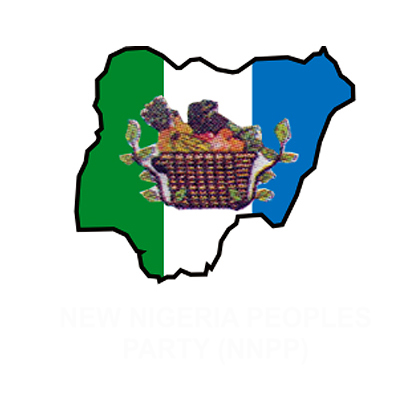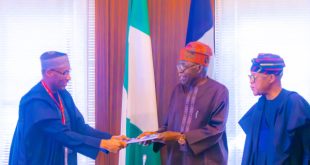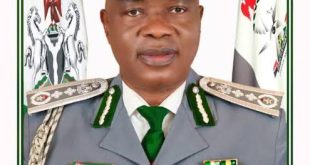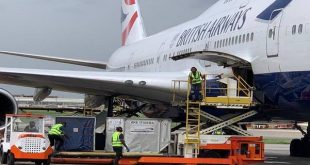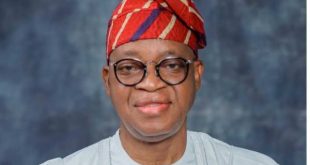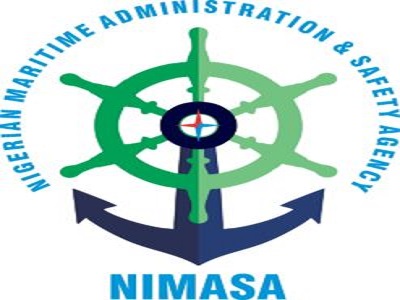- Stakeholders List Success Secrets For Amaechi
- Shippers’ Council Gets Best Agency Awards
Really worried about the bout of leadership failure in the transport sector, and fear for the Minister of Transport, Rt. Hon. Rotimi Amaechi in particular, stakeholders in the maritime transport sub-sector gathered on Thursday, last week in Lagos to identify and address the sector’s challenges, and concluded that the nation needs a transport policy for an effective multi-modal transport system to drive the economy, even as they listed other areas of success for the Minister if only he will heed to them.
The call was made at the inaugural Transport Leadership Lecture organised by Kings Communications Ltd., with the theme “Driving Change with Leadership in Transport Industry.”
The Guest Speaker, Prof. David Adamu Baike, a former vice-chancellor of the University of Benin, said Nigeria needs drastic change in a positive direction to drive economic activities.
He said that a well organised transport system of a country could easily be the life-wire of that country, as is being experienced in Ethiopia.
He, however, lamented that Nigeria with its multifarious endowments in transportation facilities remained the most disorganised and the most wasteful system in place.
Baikie noted that people must be held accountable for actions, while the system would require responsible leaders who should be dedicated to the course of the industry for progress.
“No one has been held accountable for the disgraceful demise of the Nigeria Railways, Nigeria Airways and the prestigious shipping lines that plied between Lagos and Southampton and or Liverpool.
“The crux of the matter is that we do not have an integrated policy on transportation system in the country and these accounts for chaos that is characteristic of our experiences while travelling within the country.
“The transport industry in Nigeria is in a desperate situation. It will require a committed leadership that will be prepared to make sacrifices that will bail the industry from its present morass,” he said.
The call was made at the inaugural Transport Leadership Lecture organised by Kings Communications Ltd., with the theme “Driving Change with Leadership in Transport Industry.”
The Guest Speaker, Prof. David Adamu Baike, a former vice-chancellor of the University of Benin, said Nigeria needs drastic change in a positive direction to drive economic activities.
He said that a well organised transport system of a country could easily be the life-wire of that country, as is being experienced in Ethiopia.
He, however, lamented that Nigeria with its multifarious endowments in transportation facilities remained the most disorganised and the most wasteful system in place.
Baikie noted that people must be held accountable for actions, while the system would require responsible leaders who should be dedicated to the course of the industry for progress.
“No one has been held accountable for the disgraceful demise of the Nigeria Railways, Nigeria Airways and the prestigious shipping lines that plied between Lagos and Southampton and or Liverpool.
“The crux of the matter is that we do not have an integrated policy on transportation system in the country and these accounts for chaos that is characteristic of our experiences while travelling within the country.
“The transport industry in Nigeria is in a desperate situation. It will require a committed leadership that will be prepared to make sacrifices that will bail the industry from its present morass,” he said.
Prof Baikie drew the federal government attention to the National Conference report, apparently for action.
Among the recommendations of the Confab report was that Nigeria should have a policy formulating body which is the Council and the National Transportation Commission (NTC) to handle; create independent economic and safety regulation department for the transport sector under the NTC; promote economic development, expand trade and improve Nigeria’s competitiveness through an efficient and affordable integrated transport network; increase the involvement of the private sector in the provision, maintenance , operations and upgrading of infrastructure.
Other recommendations of the Confab report that Baike pointed out were on the need to develop transport infrastructure that ensures environmental sustainability and internationally accepted standard as well as to create a national integrated multimodal transport network.
Baike said the obvious implication of the confab recommendation was that there was deficiency in nearly all the issues in the sector, adding that millions of Naira were being lost as a result of operating poor transport system.
He said a leader faced with driving the change agenda may have no problem provided he is conversant with what is needed to be changed and given the tools to attain the goals of his/her mission.
The transport industry, he said, needs a new direction, but he noted that a leader cannot on his own make the change happen in the absence of inspiration from those that ‘own’ the industry and willing to make things happen.
The transport industry, he said, needs a new direction, but he noted that a leader cannot on his own make the change happen in the absence of inspiration from those that ‘own’ the industry and willing to make things happen.
“There is a great future for the transportation industry in Nigeria. There is the land mass, our population is increasing in leaps and bounds, our waterways are lying fallow waiting to be put into good economic use, people and agriculture products are waiting to be moved from one end of the country to the other, all that is required is for us to have the blueprint on transport in place and provide there wherewithal that would drive the change agenda. As of now, our transport industry is pedestrian”, he said.
Chairman of the occasion, Barr. Margaret Orakwusi, said leadership in the industry should be backed with appropriate legal and regulatory framework that should cause board members to be appointed justifiably.
She said the leadership must show ability to carry out its function with zero tolerance for corruption, which had been a bane of development in the industry.
At the panel discussion, a maritime lawyer and Convenor, Oil and Transport Logistics (OTL) Africa, Barr. Emeka Akabogu called for a leadership with focus on driving set agenda and achieving goals, not just going about routine works, signing of contracts.
He charged the transportation minister to define Nigeria’s transport policy, have operational standards and ensure that the agencies under the ministry performed their key roles to develop and grow the sector.
Chairman of the occasion, Barr. Margaret Orakwusi, said leadership in the industry should be backed with appropriate legal and regulatory framework that should cause board members to be appointed justifiably.
She said the leadership must show ability to carry out its function with zero tolerance for corruption, which had been a bane of development in the industry.
At the panel discussion, a maritime lawyer and Convenor, Oil and Transport Logistics (OTL) Africa, Barr. Emeka Akabogu called for a leadership with focus on driving set agenda and achieving goals, not just going about routine works, signing of contracts.
He charged the transportation minister to define Nigeria’s transport policy, have operational standards and ensure that the agencies under the ministry performed their key roles to develop and grow the sector.
While defining leadership as one focused on goals, Akabuogu called on the Transport Ministry to pursue the passage of relevant Bills affecting the sector in the National Assembly.
Referring to the Petroleum Industry Bill (PIB) which is now receiving the attention of the National Assembly because of the efforts put up by the Oil Ministry and other stakeholders involved, he said it should have been the same on the transport side as far as National Transport Commission (NTC) Bill and other related Bills were concerned.
He also pointed out the need for Transport Policy, Cabotage Shipping, Cabotage Vessel Financing Fund (CVFF), conflicting roles of government agencies in the sector, trade facilitation and marine transportation as among the challenges of the sector that the Transport Minister should address.
President of the Association of Nigerian Licensed Customs Agent (ANLCA), Prince Olayiwora Shittu in his contribution called on the Minister to refer to the reports of various committees set up in the past by the federal government.
Shittu said the problem has been that recommendations by experts are usually not implemented, and called on the Minister to set up a Committee that will harmonise all the recommendations made in the past for the development of the transport sector.
Former Director General of the Nigerian Maritime Administration and Safety Agency (NIMASA), Mrs. Mfon Usoro was of the view that Nigerian experts should not demarket Nigeria as far as development is concerned in the transport sector.
Usoro said that while criticizing the government in areas of failure, there is the need to also highlight areas of positive records
An industry expert, Otunba Kunle Folarin,Chairman, Ports Consultative Council(PCC) proposed a realignment of the transportation sector in line with a national transport policy.
He said each of the agencies under the ministry require master plans to enable them function with a focus, adding that Nigeria needs an integrated transport system to support its economic agenda.
In his contribution, Barr. Alban Igwe, Acting Registrar, Nigeria Institute of Freight Forwarders and Customs Brokers (NIFFCB) called for a transportation policy and the need to make available a document that would encourage prospective investors to the sector.
He said the draft policy on transportation needs a review, in order to give the industry the required direction, while professionalism should be given a priority in the running of the industry.
The event Convenor, Mr. Kingsley Anaroke, said the issue of a national transport policy should be top on the agenda to engender the desired position for Nigeria’s transportation system.
Anaroke said the draft policy on transportation had been abandoned since 2003, therefore leaving the industry without a clear-cut direction to follow.
He urged the transportation minister to raise and work with technical committees that have the wherewithal to address the issues plaguing the industry.
High point of the event was the award presentation of the ‘Best Maritime Agency of the Year 2015’ to the Nigerian Shippers’ Council.
An industry expert, Otunba Kunle Folarin,Chairman, Ports Consultative Council(PCC) proposed a realignment of the transportation sector in line with a national transport policy.
He said each of the agencies under the ministry require master plans to enable them function with a focus, adding that Nigeria needs an integrated transport system to support its economic agenda.
In his contribution, Barr. Alban Igwe, Acting Registrar, Nigeria Institute of Freight Forwarders and Customs Brokers (NIFFCB) called for a transportation policy and the need to make available a document that would encourage prospective investors to the sector.
He said the draft policy on transportation needs a review, in order to give the industry the required direction, while professionalism should be given a priority in the running of the industry.
The event Convenor, Mr. Kingsley Anaroke, said the issue of a national transport policy should be top on the agenda to engender the desired position for Nigeria’s transportation system.
Anaroke said the draft policy on transportation had been abandoned since 2003, therefore leaving the industry without a clear-cut direction to follow.
He urged the transportation minister to raise and work with technical committees that have the wherewithal to address the issues plaguing the industry.
High point of the event was the award presentation of the ‘Best Maritime Agency of the Year 2015’ to the Nigerian Shippers’ Council.
 MMS PLUS NG – Maritime, Aviation, Business, Oil and Gas News Online Newspaper with coverage in Maritime, Oil and Gas, Aviation, Power and Energy as well as Financial News
MMS PLUS NG – Maritime, Aviation, Business, Oil and Gas News Online Newspaper with coverage in Maritime, Oil and Gas, Aviation, Power and Energy as well as Financial News




